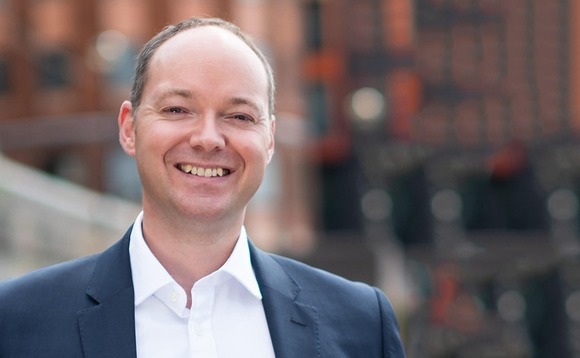
GP Profile: Equistone banks on experience to ride through the next cycle

European mid-market sponsor Equistone is banking on the multi-cycle experience of its team to carry the firm and its portfolio through the next storm as it looks towards future fundraising and portfolio development, UK-based partner Tim Swales told Unquote.
Equistone has made 179 investments and more than 300 bolt-ons since 2002. According to Unquote Data, the GP has been deploying at a steady pace of around seven to 10 platform deals per year since 2018, other than in 2020, when it made two new investments.
Swales remains grounded when it comes to the current market. "I am not trying to pretend that we are not in a more negative environment from a macro perspective than we have been in for some time, and it feels like it will get worse before it gets better," Swales said. "But we learn each time, and every crisis is subtly different. Every business is different, and every management team reacts differently, but we are fortunate that we have a long standing-tenure as a firm, which is important in making sure that we do the right thing."
The GP is currently deploying equity via Equistone Partners Europe Fund VI, which held a final close in March 2018 on EUR 2.8bn, surpassing its EUR 2.5bn target. "We are about 75% deployed from our current fund, so clearly there is a point down the road where we will be raising another fund, and doing this successfully is a priority," Swales said. "That will be supported by our track record and our recent investment and exit activity."
The GP registered its seventh flagship fund in May 2022, but Swales did not comment further on plans for the next fund.
Other than contemplating a future fundraise, Equistone's day-to-day operations are "business as usual", Swales said. "We will remain rigorous in evaluating our portfolio. We have been around long enough to see lots of ups and downs and challenging situations, and we believe that we have the experience to get through them."
Building expertise
Equistone invests in six sectors across Europe: business services, consumer, industrials, healthcare, financial services, and TMT. The firm backs businesses with enterprise values of EUR 50m-EUR 500m, making equity investments of EUR 25m to more than EUR 200m per deal.
"Our approach takes into account the sector dynamics in each geography in which we operate, thereby allowing country teams to focus on sub-sectors that are particularly attractive in their local markets," Swales said. "We're currently well placed to find opportunities across the board within these sectors, with the possible exception of certain consumer businesses, although we did do some deals there earlier this year."
The GP's sector expertise across Europe is a differentiating factor, Swales said, and Equistone does not view itself as a "generalist" fund, according to Swales. "We have a longstanding group of people in the business with a great European network and reputation," he said. "Adding that together with the sector experience, that is quite a differentiator. LPs are starting to acknowledge that these things matter – a couple of years ago, some people wanted to see us doing technology and healthcare, and there can be real value there, but there are other differentiators and approaches."
In fact, the firm expects the current macroeconomic tailwinds to allow it to demonstrate its expertise. "Where we are heading today – without wanting to see a difficult period – it feels like there will be a rebalancing to some extent," Swales said. "We find that an easier environment to play in – we're not the house for chasing EBITDA multiples up to high double-digits for software businesses, but are better at playing on the broad economic spectrum, finding value in dislocated, ‘normal' or slightly less ebullient times."
Although the market is "quieter than it has been for some time" due to the current uncertainty, Equistone does not plan to change its strategy, Swales said. "We are here to evaluate different investment opportunities based on macro and business-specific risks. These will shy us away from specific scenarios but will also present opportunities."
Assessing the portfolio
The GP currently has 49 investments in its portfolio according to its website and has made five exits to date in 2022. "We have a reasonably wide portfolio and there are always a number of candidates on the list, but we aim never to be forced sellers," Swales said. "If we get to the right deal that is the right answer for us and the buyer, we will progress it. But if it's a good business and we believe in it, we will continue to hold it."
The GP has demonstrated this strategy with recent deals including France-based electricity distribution products and services provider Sicame. As reported, the firm opted to transfer the asset to a continuation fund earlier this year, having held a stake in the business since 2009.
Current exit candidates in Equistone's portfolio include Belgium-headquartered network equipment solutions provider Amadys and Germany-based digital marketing agency PIA, according to reports from Unquote sister publication Mergermarket.
"We're constantly evaluating the portfolio as a formal internal process," Swales said. "We have obviously put more scrutiny around exposure to inflationary pressure and interest rate rises, which are newer topics. But new topics crop up all the time; we had a head-scratching moment with Covid as well."
Equistone is continuing to think about various forms of value creation in its portfolio and new investments amid the current macroeconic situation. "We think about the value creation opportunity every time we do due diligence, fleshing it out over and above the plan presented to us in early strategic discussions with management," Swales said. "We then put in strategic effort and put the resources and support in place, be it on how we go to market or through M&A."
Its priorities will be determined to some extent by the current market challenges, Swales told Unquote. "There will be no radical change, but we might have to look at incremental things such as cost-cutting or supply chain pressure around," he said. "The current environment doesn't necessitate increased focus on bolt ons, but for a business where this was part of the plan, valuations might be in a better place in six months' time in a dislocated market."
An example of this is FirstPort, Swales said, which made its "best bolt-on" during Covid. The UK-based property management company bought domestic property and asset management business Mainstay Group in June 2020. Equistone sold FirstPort to Partners Group- and TA Associates-backed European residential real estate services provider Emeria in March 2022.
Latest News
Stonehage Fleming raises USD 130m for largest fund to date, eyes 2024 programme
Sponsor acquired the public software group in July 2017 via the same-year vintage Partners Group Global Value 2017
Stonehage Fleming raises USD 130m for largest fund to date, eyes 2024 programme
Czech Republic-headquartered family office is targeting DACH and CEE region deals
Stonehage Fleming raises USD 130m for largest fund to date, eyes 2024 programme
Ex-Rocket Internet leader Bettina Curtze joins Swiss VC firm as partner and CFO
Stonehage Fleming raises USD 130m for largest fund to date, eyes 2024 programme
Estonia-registered VC could bolster LP base with fresh capital from funds-of-funds or pension funds









